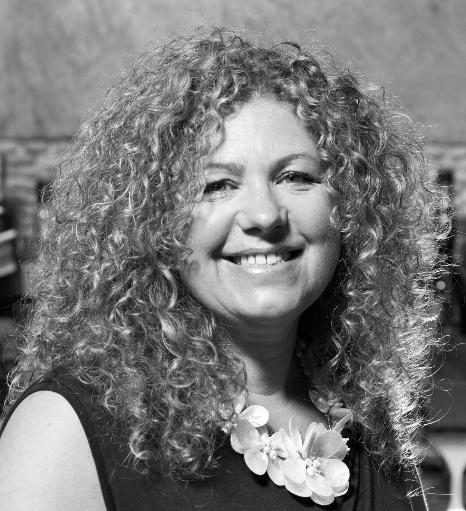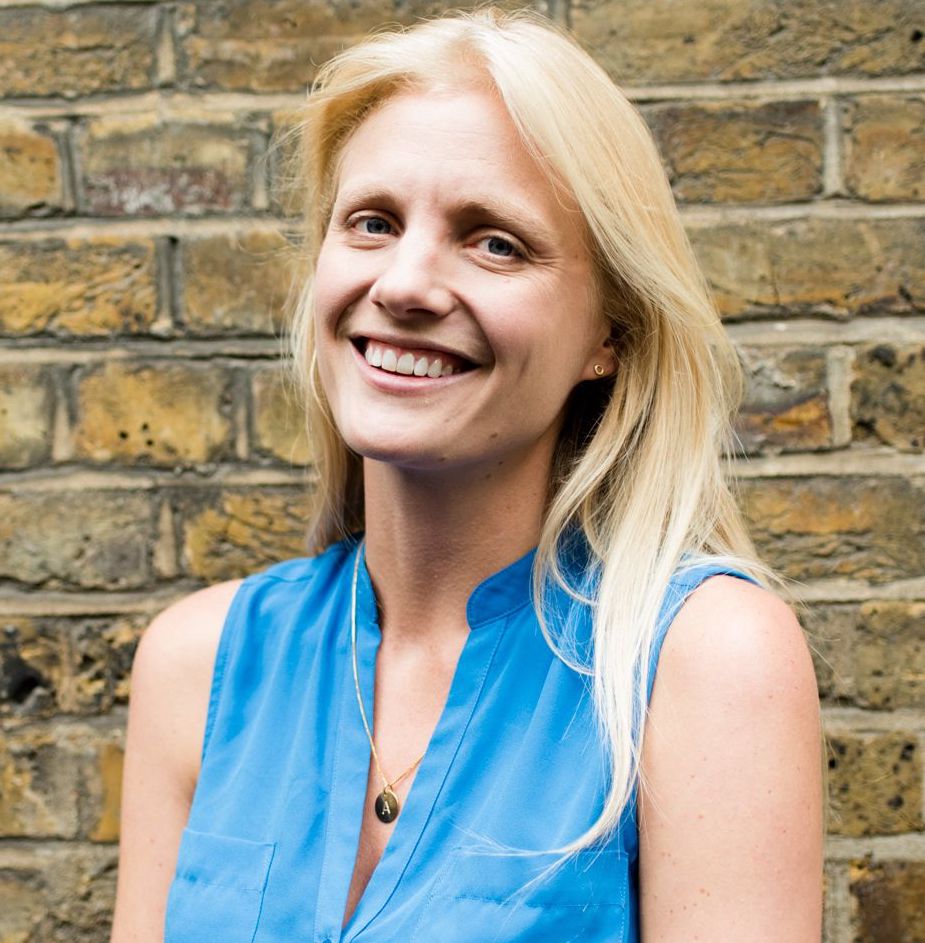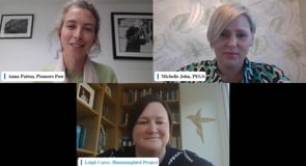‘It’s a complex glass prism’: navigating the barriers facing women in social enterprise
WISE Ways to Lead: It’s not quite as simple as breaking the ‘glass ceiling’ when it comes to tackling gender inequality. Karen Lynch and Antonia Orr suggest alternative perspectives and practical tips to help women thrive in a social enterprise career.
When addressing the barriers facing women in social enterprises, it’s important to reframe the way we see those barriers. “It’s not always a glass ceiling, it’s a complex glass prism,” Karen Lynch, CEO of Expert Impact, said.
 Lynch was speaking at last month’s WISE Ways to Lead webinar, run by Pioneers Post in partnership with NatWest, which focused on how women in social enterprises can navigate gender-related barriers.
Lynch was speaking at last month’s WISE Ways to Lead webinar, run by Pioneers Post in partnership with NatWest, which focused on how women in social enterprises can navigate gender-related barriers.
Julie Pybus of Pioneers Post, who hosted the discussion, pointed out that – despite research by Social Enterprise UK showing that women lead 47% of social enterprises in the UK, and constitute 61% of the workforce – female social entrepreneurs still get less investment than their male counterparts, “especially working-class women, women of colour and women with caring responsibilities”.
Lynch, who is also the founder of Expert Impact Speakers, described as “the world’s first social enterprise talent bureau”, said: “For me, a glass ceiling isn’t just about women. It’s about anything that is standing in the way… any barrier that is more likely to affect some more than others.”
I find it impossible to talk about women in leadership without looking at the race and the class dynamics as well
Antonia Orr, who manages partnerships at Impact on Urban Health and is a co-founder of She Leads Change, expounded on this point, emphasising the need for an intersectional approach when it comes to addressing social barriers in the workplace. “I find it impossible to talk about women in leadership without looking at the race and the class dynamics as well when they come into this. It’s really important not to just group it all together because the big structural barriers can become diluted,” she said. For example, an indigenous male farmer in Mexico would struggle to get the same access to funding as a wealthy white woman.
- Explore more in our WISE100 collection, an initiative to support women in social enterprise, impact investing and mission-driven business to learn from and collaborate with each other
Glass mountains
 Both Lynch and Orr, who each have years of experience of running a social enterprise, recommended a nuanced approach to tackling obstacles in the workplace. Lynch said: “[Rather than] glass ceilings, they could always be glass walls, they could always be glass mountains… because that way, instead of having to think about breaking upwards, we can think about navigating around them, or tunnelling under them. We have other options other than smashing them.” In more practical terms, she suggested not becoming over-fixated with trying to tackle gender barriers in themselves.
Both Lynch and Orr, who each have years of experience of running a social enterprise, recommended a nuanced approach to tackling obstacles in the workplace. Lynch said: “[Rather than] glass ceilings, they could always be glass walls, they could always be glass mountains… because that way, instead of having to think about breaking upwards, we can think about navigating around them, or tunnelling under them. We have other options other than smashing them.” In more practical terms, she suggested not becoming over-fixated with trying to tackle gender barriers in themselves.
Instead, she highlighted the need for collaboration to get ahead as women. “We are still a minority in our way of doing business. We are still a minority in putting purpose before pounds. Therefore, things are going to be tough on many fronts,” Lynch said. “If you want to make progress and have an impact quickly, you haven’t got time to stop and solve every problem at a strategic level. You need to collaborate, and you need to focus on that as part of the outcome, but not always make it [the main] issue.”
If you want to make progress and have an impact quickly, you haven’t got time to stop and solve every problem at a strategic level
Asked if that also meant collaborating with men to achieve one’s goals, Lynch replied: “It’s not about whether they’re male or they’re female, it’s about identifying ‘What's your game plan to achieve what you want to achieve?’ and ‘Who do you need on board?’ Just because others aren’t being inclusive, it doesn’t mean that we shouldn’t be.”
Career coaches and ‘brag books’
Orr also added some more practical tips for women who work in social enterprises. For individuals struggling with imposter syndrome and personal confidence, she recommended getting a coach who could help you “think about your career more creatively”, creating a ‘brag book’ listing all your accomplishments, and increasing your ‘visibility score’ by sharing your work and your successes.
On a structural level, she said that investors and employers who could afford it should consider reforming their organisation’s internal mechanisms (such as extending parental leave) and external mechanisms (such as offering smaller grants to help founders get their businesses off the ground).
Watch the video above to hear the full conversation. Check back soon for more details of our next webinar in this series.
Thanks for reading our stories. As an entrepreneur or investor yourself, you'll know that producing quality work doesn't come free. We rely on our subscribers to sustain our journalism – so if you think it's worth having an independent, specialist media platform that covers social enterprise stories, please consider subscribing. You'll also be buying social: Pioneers Post is a social enterprise itself, reinvesting all our profits into helping you do good business, better.



